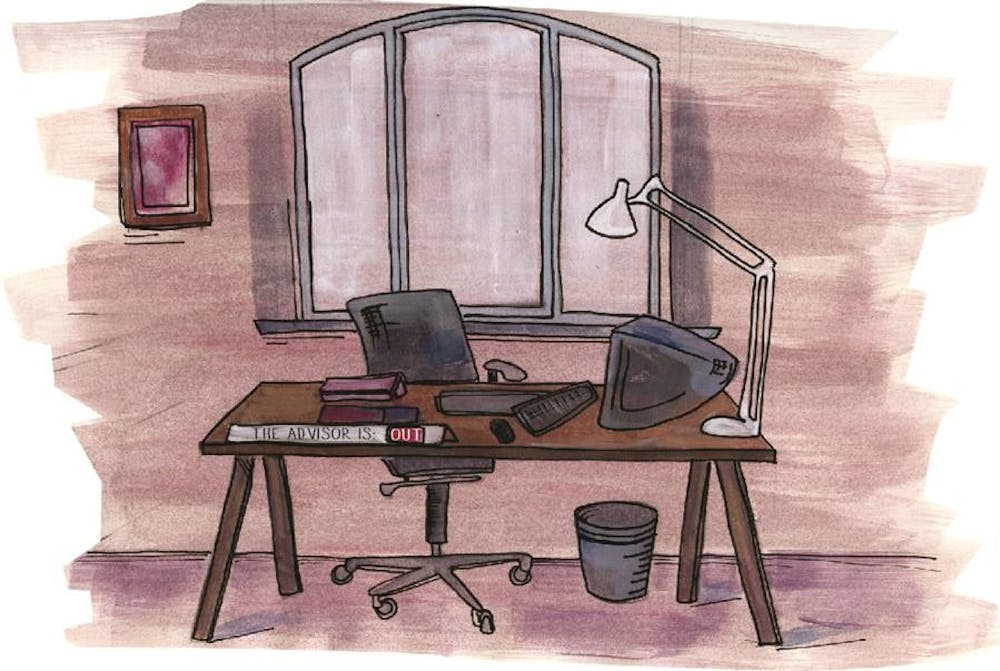Sixty percent of students don’t bother working with their academic advisers, according to the National Survey of Student Engagement.
But after reflecting on our own advising experiences, we can’t really blame the students who went to one awful advising appointment and decided never to do that again.
Though 75 percent of students reported their adviser was readily available, and they were happy with the services they received, bad advising experiences still offer a valid excuse not to go.
Some students are welcomed by a knowledgeable adviser who has taken the time to find out what the student is truly interested in and actively helps the student find the best plan for his or her upcoming semester and future.
Unfortunately, other students find themselves more confused after talking with an adviser that is inexperienced, apathetic, overloaded by more than one major or just simply incompetent.
Advisers should be experts in their field who can guide students through the University bureaucracy toward great classes, possible internships and what to do after graduation.
This can be difficult when advisers are tasked with helping students from three totally unrelated fields, a situation that currently exists at IU.
Furthermore, if a student becomes uninterested in his or her major, an adviser is really their only resource for finding a new area of study.
The risk could be far greater if you don’t attend any advising appointment at all — unless you regularly attend appointments with an incompetent adviser who neglects to tell you until your last semester that you actually need a few more classes to graduate.
We’ve all heard countless horror stories of students who had to attend college longer and pay for another semester just because they were unaware of a specific requirement or didn’t take a certain course.
Some of them actually had regular advising appointments.
Luckily, IU understands that sometimes making it to an advising appointment just isn’t doable or desirable.
The University provides tools through OneStart’s Student Center, like the Academic Planner and the Academic Advising Report, which allow you to plan by your selected major(s) requirements and determine which you have yet to fulfill.
But these tools are sometimes out of date or wrong for certain majors, so even the most self-sufficient students can be led astray.
Personal preparation and competent academic advising are needed in concert to successfully navigate college.
Students and advisers should both work on improving the experience.
Advisers should be willing and capable to learn about the student and his or her specific needs.
Students should do some research before their appointment and have at least a vague idea of some classes or a direction they want to head.
Some people do struggle with their advisers, but the overwhelming majority reported positive experiences.
Don’t let the horror stories deter you.
You might have to try out a few advisers before you find the best one for you or you might spend a little more time hashing out all your qualms with one that doesn’t quite grasp what it is you want, but in the end, these meetings are worth it.
Advisers are there to hold our hands and make sure we get through our college requirements as unscathed as possible.
The advising system needs changes, but until that’s accomplished on both sides of the advising spectrum, the adviser and the student need to work together to ensure success.
— opinion@indiana.edu
Follow the Opinion Desk on Twitter @ids_opinion.
ill-advised

Get stories like this in your inbox
Subscribe




